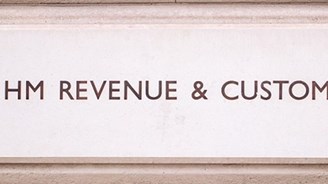Illustrative audit reports
The FRC has updated its illustrative auditor’s reports in a revised bulletin applicable for accounting periods commencing after 1 February 2020 with filing after 31 December 2020. The principal change reflected in the bulletin is the impact of Brexit for those entities that prepare their financial statements in accordance with international accounting standards, so there will be little impact where UK GAAP is being adopted.
FRC annual report
The FRC has published its annual report and accounts for the year to 31 March 2021. The narrative element celebrates its progress towards transformation into the new regulator the Audit, Reporting and Governance Authority (ARGA) and picks out key figures for items achieved in the year such as the number of corporate reporting reviews and audit quality reviews completed.
FRC audit quality inspection results
The FRC has released its latest audit quality inspection results, in the form of an overview report and then individual documents for each of the firms reviewed, being the “big four” and the three largest firms outside this group. Overall, 71% of audits required no more than limited improvements, and the balance remaining was described as “unacceptably high”.
The reports contained criticism of KPMG particularly around their banking audits; looking at the next tier of firms the FRC noted that they would be particularly watching firms with growth in their PIE audit share since audit quality needs now to be robustly embedded, and while firms’ efforts were praised, it is recognised that they still have more to do.
Perhaps unsurprisingly the most criticisms came around auditor challenge of management including their assumptions used in areas such as estimates, impairment and going concern.
Draft standard for the audit of less complex entities
After a long period of discussion and outreach followed by an accelerated drafting process, the IAASB has issued a draft standard for the audit of less complex entities (LCEs). It was decided that auditors of LCEs would benefit more from being able to access a single self-contained standard than to have separate sections within, or exemptions from, the main ISAs, and the draft standard does not include any requirements to look to full ISAs. The consequence of this is that if an entity has complex arrangements that cannot be audited using the requirements of the draft LCE standard, this would show it was unsuitable and the whole audit would need to be under full ISAs.
The comment period for the draft standard closes in January 2022.
You can read more about the proposed new standard on our blog.
Proposed changes to IFRS
The IASB has issued an exposure draft of a new IFRS Standard that would allow subsidiaries of IFRS preparers to prepare IFRS accounts too, but with reduced disclosures. The standard would apply only to subsidiaries that are not classified as publicly accountable. It would achieve a similar outcome to that already available for companies in the UK through FRS 101 so the UK Endorsement Board would need to assess whether it was necessary to endorse the proposed new standard. The comment period closes in January 2022.
The IASB has issued an exposure draft proposing a narrow-scope amendment to IFRS 17 affecting insurers applying IFRS 9 and IFRS 17 for the first time, with no other changes suggested to accounting by insurers. The comment period closes in September 2021.
TAXATION
HMRC answers questions on CGT on UK residential property
Following pressure by the ICAEW on the quality of guidance on reporting and paying capital gains tax on UK residential property, HMRC has developed a question and answer help sheet offering further clarity and pledged to update existing guidance.HMRC has named 191 companies which failed to pay £2.1m to over 34,000 workers.
Off-payrolling enforcement
The Department for Work and Pensions (DWP) has been issued with a tax bill of £87.9m due to incorrectly assessing the IR35 status of contractors engaged since 2017, despite it using HMRC's check employment status for tax (CEST) tool! According to the DWP annual accounts for 2020/21, an HMRC review resulted in an 'agreement on historic errors and acceptance by DWP of a liability for missing tax and NIC plus interest for the financial years 2017-18 (£21.1m), 2018-19 (£36.7m) and 2019-20 (£29.7m)'. The £87.9m also includes a liability for 2020/21 of £0.4m.
Reporting coronavirus (COVID-19) grants and support payments
HMRC have issued guidance on including a COVID-19 grant or support payment on the tax return for the self-employed or a partner in a business. .




